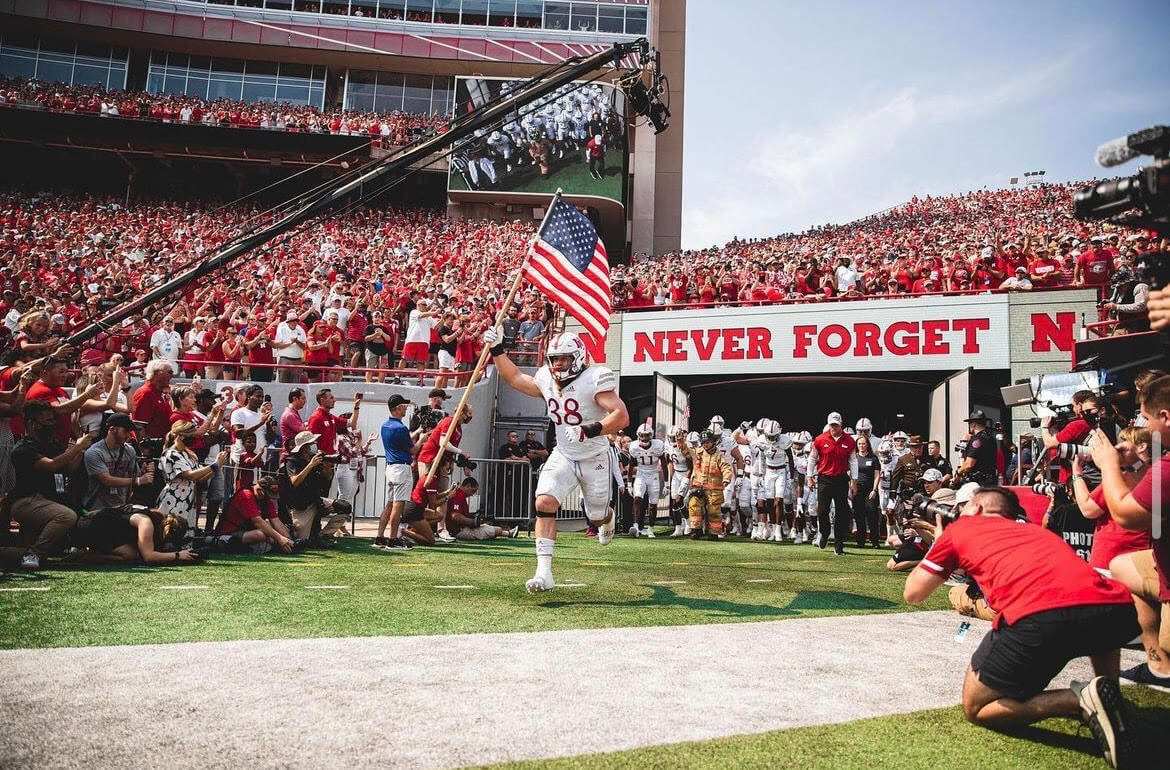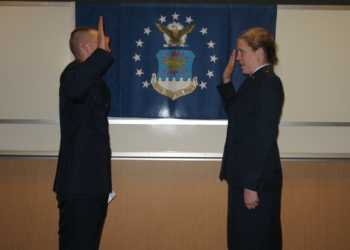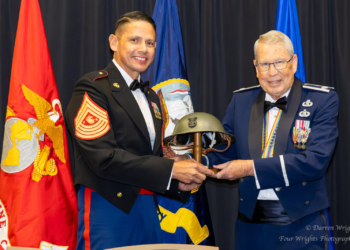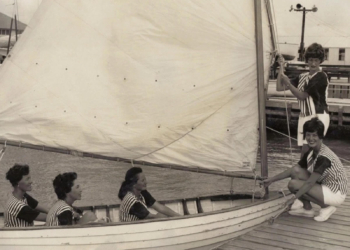Former Navy SEAL Damian Jackson had a mission, but not of the Middle East-theater variety.
He’d already been there, done that.
This one was much closer to home in Lincoln, Nebraska – where one week in 2017 he waited outside Memorial Stadium for the opportunity to speak with then-Cornhusker head football coach Mike Riley.
Jackson lingered for a couple of days, hoping to see the former Oregon State coach, who would be a kind of disaster incarnate at Nebraska. The goal-oriented former SEAL had previously journeyed to Lincoln for a tryout that didn’t turn out in his favor.
“They said, ‘You know, if you don’t hear a phone call within like two weeks, you didn’t make the team.’ And I didn’t hear a phone call within those two weeks,” said the bearded Jackson, who resembles a younger version of the iconic record producer Rick Rubin in appearance and voice.
But Jackson was persistent and waited for a chance to prove he could be a part of Big Red on Saturday afternoons.
Self-centered to SEAL
Jackson freely admitted he wasn’t a good student while attending Shadow Ridge High School in his hometown of Las Vegas. A self-centered adolescent, he didn’t play football, which requires a team-first attitude more than other sports. Instead, he participated in baseball and soccer, team sports that allow for more individuality.
 College wasn’t an option immediately available to Jackson upon graduation, so he took the same route as his older brother – the military – and enlisted in the Navy. After boot camp, he went through the SEAL BUD/S 24-week training course.
College wasn’t an option immediately available to Jackson upon graduation, so he took the same route as his older brother – the military – and enlisted in the Navy. After boot camp, he went through the SEAL BUD/S 24-week training course.
But he didn’t set out to be a Navy SEAL. Rather, his personality made the choice. Jackson had the physical tools and the right stuff mentally. He completed the grueling weeding-out process, eventually becoming a breacher — the one who enters a structure to clear it of threats.
“Everything in life is just kind of like, if you want something, go try to do it and just keep exhausting every avenue until you can’t do it … and then move on to the next thing,” Jackson said. “So, I don’t have like some philosophy or any magic words to tell anybody. It’s just like, you know, I want to do it. Let’s go try to do it.”
While in high school, he participated in a student-exchange program and lived in France. He didn’t really have an interest in the country and wasn’t taking French classes. But it had a challenge and out-of-comfort-zone elements.
“I feel like I’m a little bit different. Think a little bit different than most people,” Jackson said. “I was a foreign exchange student in France. And there’s no rhyme or reason why. I just decided I wanted to do it. So my mom told me, ‘Just get a job,’ and I ended up getting half the money for it. And I went. Not because I was like so enthused by going to France or learning French … [I] just kind of went and did it.”
Risk versus reward
His reasons for becoming a SEAL came from the same place. Supposedly, the brain is wired for habitual experiences, not what’s next. But Jackson’s psyche defies this theory.
“Let’s just keep – keep exploring, keep going,” he said. “So, once I got into the SEALs, it was like, ‘Keep doing that, and then all right, what’s the next door? What’s the next opportunity? All right, we get into college. All right, what’s the next opportunity? NFL, let’s do that. See if it goes. And if it doesn’t, figure something out.’”
But that life philosophy comes with risks. Jackson had a lucrative gig in the Navy and ditching it to make a gridiron goal become reality could easily have gone sideways.
RELATED: Fields of glory: Former Army football coach reflects on success
“I had a good-paying job when I was in the SEALs,” Jackson said. “One of the highest-paying jobs in the military. And then just leaving everything behind to go to college and try something is definitely a huge risk.”
But that mindset served him well in the pursuit of his college football objective. So, Jackson continued waiting for Riley outside the stadium.
“It took me a couple of days just waiting out there for him,” Jackson said. “… and then I found the coach, kind of scared him a little bit. And then the next day after all that, somebody called me, brought me in. He’s like, ‘Don’t ever do that again. Don’t go behind our backs … You got like a two-week trial, and if we don’t like you, you’re off the team.’”
Jackson showed up every day and practiced. He never heard a word from the coaching staff, so he assumed he had made the team. And he did. The risk paid off.
“So at Nebraska, I was kind of like just the backup. If somebody gets tired, I’ll go in and fill in for a couple of plays and keep doing that all game,” he said.
Jackson learned the sport, improving steadily and becoming a reliable player.
Jovan Dewitt, a former special teams coach at Nebraska and the University of North Carolina, coached Jackson while he was a Cornhusker.
“Being on a major college football team takes people out of their comfort zone,” Dewitt said in a Navy-produced mini-documentary about Jackson. “Anybody that’s willing to step into that arena, they’re built a little bit differently. Whether times are good or whether times are bad, whether we’re up or we’re down, he’s the same guy giving the same effort all the time.”
The former Cornhusker exhausted his eligibility at Nebraska but had one year left of collegiate eligibility due to the COVID-19 pandemic. He decided to transfer.
“I really wanted just to get film to see if I go to another school, it’s either you’re decent at football, or you suck,” he said.
Jackson lives an existential existence, identifying the problem or goal and seeking a solution, then accepting the outcome, whether it’s favorable or unfavorable. His final year would be the outcome.
“I needed to figure out if I was good enough to play or if I just was really bad,” he said. “So that’s the reason why I transferred … to get film and just to test myself. Getting a lot of plays, getting a lot of reps, see how I do when I’m tired, see if I really love football.”
‘To coach him was easy’
Jackson selected the University at Buffalo, a Division I Football Championship Subdivision program, as the final proving ground. He entered the school as a 30-year-old graduate student. Improvement was evident.
Jackson played in all 12 regular-season games for the Bulls, registering 22 tackles, three sacks and three pass breakups.
Cedric Douglas, the defensive line coach at Buffalo, said Jackson is excellent at football, but more significantly, is the toughest, hardest working player he has ever encountered.
“He may go down as one of the best I coached,” said Douglas, barely older than Jackson. “To coach him was easy.”
What Douglas found challenging was Jackson’s thirst for precise details. Douglas said he has a teaching background, which is a coaching strength. But with Jackson, he had to deliver information with careful clarity. Douglas couldn’t praise Jackson enough. He was unlike any player he had ever coached.
“He was a true pro to coach … humble guy,” Doulas said. “On kickoff, I swore he would go down laughing, smiling … He liked the collision.”
All the reps gained from the Buffalo experience answered some questions for Jackson, preparing him for his next step.
“I think in the end, it was a really good decision … You find out a little bit more about yourself,” he said. “I do like playing football a lot, and I think I’m decent. And, you know, it wasn’t a total s- – – show over there. I didn’t just miss every tackle and just get embarrassed.”

Jackson’s next step is to get noticed by an NFL team. He has a pro day scheduled in March, but he knows the journey could end there. Jackson has a few ideas about what could be next if the pro day doesn’t go the way he’d like it to. But he is adaptable.
One fallback plan was to join the football strength and conditioning staff at Nebraska. But that group was fired last season.
Douglas said Jackson had mentioned dog breeding during the Thanksgiving break last fall, and Jackson talked about joining the military again, or private contracting if worse comes to worst.
“There’s also opportunities for NASCAR pit crew from Nebraska,” he said. “A lot of people have connections. So that sounds pretty good too … go try out for that. As like a jackman or something like that.”
But whatever Jackson’s future holds, he’s all in until the end. Goals don’t become too tired for him. His advice is, if there’s something you’d like to do, then do it.
“Yeah, I mean, if you just feel like something’s cool, and you want to do it in life, and that would be a good job, you’ll be happy doing that job, just go for it.”
Read comments










































